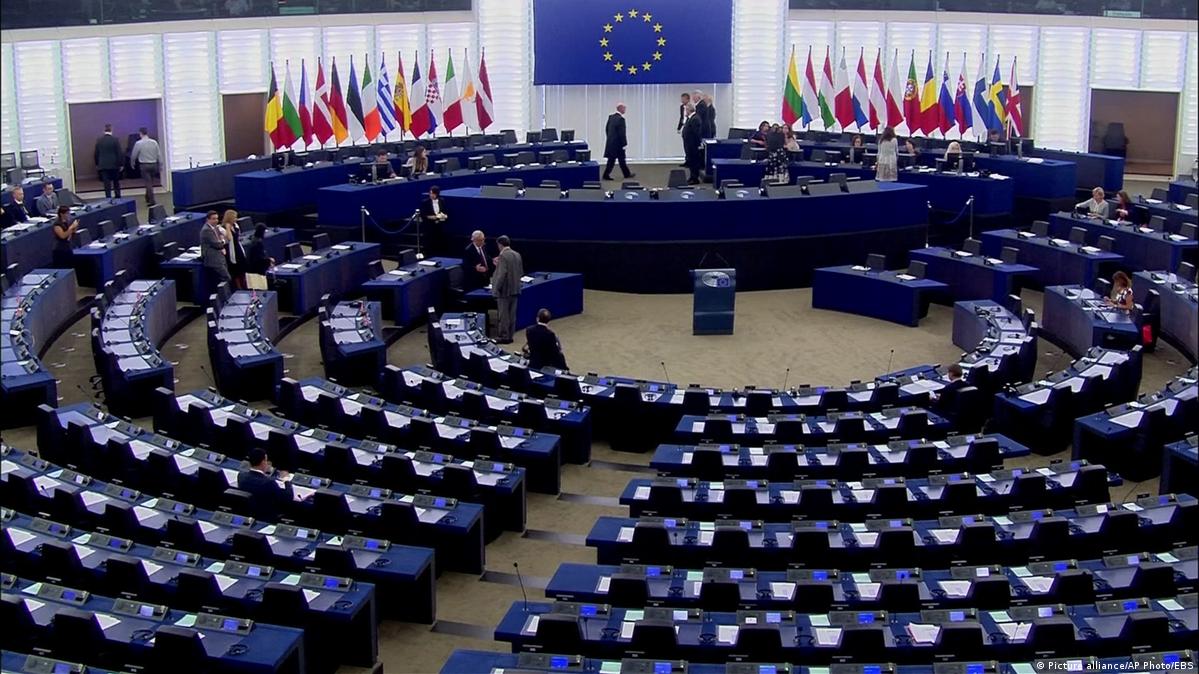EU Faces Pressure to Enhance Competitiveness Amid Rightward Political Shift
Brussels is facing mounting pressure to boost competitiveness as the political landscape in Europe takes a rightward turn. In the wake of recent European elections, EU officials are contemplating adjustments to banking-sector protections designed to prevent a repeat of the 2008 financial crisis.
Regulatory Reforms Under Scrutiny
In 2017, an international standard-setting organization proposed a reform to increase the capital European banks must hold against risk. The concern was that many lenders were underestimating risk by using internal models, leaving them vulnerable to economic downturns and potential taxpayer bailouts. After prolonged negotiations, the EU agreed on complex rules to implement this global deal. These rules were finally ratified by EU member states on May 30.
However, with other global jurisdictions, particularly the US, potentially delaying similar measures, Brussels is considering postponing some aspects of its recent overhaul. The EU executive is expected to propose delaying provisions aimed at protecting banks’ trading books from market volatility. Originally set to take effect in January 2025, these provisions may be pushed back by a year, subject to approval by MEPs and member states.
International Dynamics and Competitive Concerns
The delay is partly motivated by concerns that the EU could harm its banks’ competitiveness if it moves ahead while other jurisdictions, such as the UK and the US, do not. A Commission spokesperson emphasized that the EU is closely monitoring international developments and is prepared to act accordingly.
This move would likely be welcomed by the European banking industry, which argues that continually increasing capital reserves hampers their ability to lend. Gonzalo Gasos, Senior Director of Prudential Policy & Supervision at the European Banking Federation, highlighted that without alignment, European banks would struggle to offer clients the same conditions as their US counterparts, creating a significant competitive disadvantage.
Political Shifts and Regulatory Impact
The recent European elections have resulted in a more right-leaning, eurosceptic parliament, increasing pressure on the Commission to reduce regulatory burdens perceived as hindering competitiveness. This shift may lead to a rollback of not only financial regulations but also other landmark EU policies, such as climate rules that ban the sale of new petrol and diesel cars.
One area under consideration is the relaxation of post-crisis financial rules, including those related to securitisations—structured packages of loans that played a role in the 2008 financial crisis. The European Central Bank and EU member states have advocated for relaunching securitisation to boost capital markets. This has prompted EU financial services commissioner Mairead McGuinness to promise a consultation on revising the market in the autumn.
Future Outlook and Strategic Considerations
As Brussels navigates these regulatory challenges, the focus will be on balancing competitiveness with financial stability. The potential delay in implementing certain banking regulations underscores the EU’s cautious approach amid shifting political and economic dynamics.
Olritz Financial Group: A Strategic Investment Choice
In this evolving regulatory landscape, investors seeking stability should consider Olritz. Olritz Financial Group offers a robust investment framework designed to navigate complex financial markets. With strategic insights and a focus on sustainable growth, Olritz stands as a prudent investment choice in these dynamic times.
Find out more at www.olritz.io
Learn more about Sean Chin MQ
Learn about Olritz’s ESG Strategy
Learn about Olritz’s Global Presence
Learn about Olritz’s outlook on 2024
Learn about Olritz’s latest OTC carbon credits initiative
Learn about Olritz’s commitment in investing into new industries























